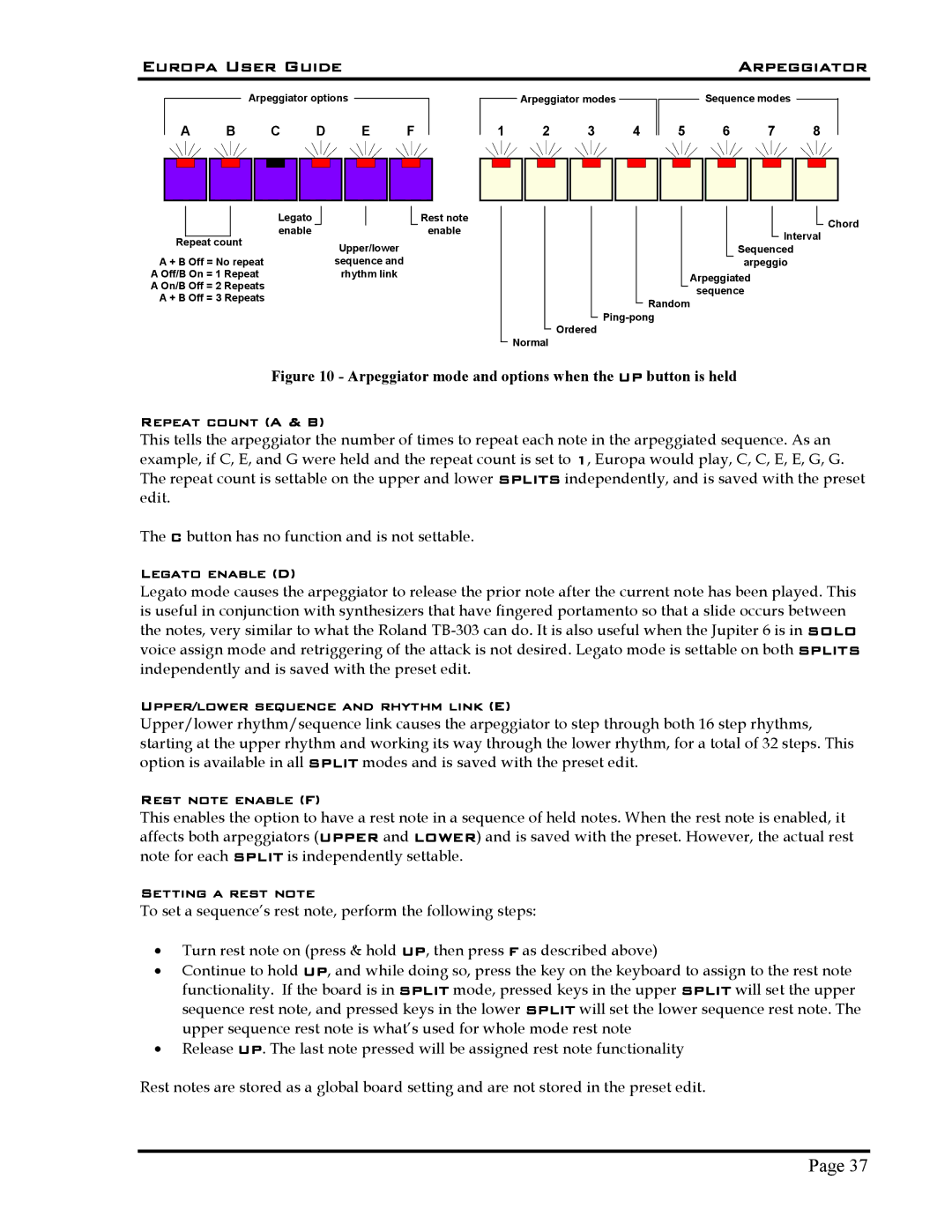
Europa User Guide | Arpeggiator |
Arpeggiator options
A B C D E F
Arpeggiator modes
1 |
| 2 |
| 3 |
| 4 |
| |||||
|
|
|
|
|
|
|
|
|
|
|
|
|
|
|
|
|
|
|
|
|
|
|
|
|
|
|
|
|
|
|
|
|
|
|
|
|
|
|
Sequence modes
5 6 7 8
Legato enable
Repeat count
A + B Off = No repeat
A Off/B On = 1 Repeat
A On/B Off = 2 Repeats
A + B Off = 3 Repeats
Rest note enable
Upper/lower sequence and rhythm link
![]() Chord
Chord
Interval
Sequenced
arpeggio
Arpeggiated
sequence
Random
Ordered
Normal
Figure 10 - Arpeggiator mode and options when the UP button is held
Repeat count (A & B)
This tells the arpeggiator the number of times to repeat each note in the arpeggiated sequence. As an example, if C, E, and G were held and the repeat count is set to 1, Europa would play, C, C, E, E, G, G. The repeat count is settable on the upper and lower SPLITS independently, and is saved with the preset edit.
The C button has no function and is not settable.
Legato enable (D)
Legato mode causes the arpeggiator to release the prior note after the current note has been played. This is useful in conjunction with synthesizers that have fingered portamento so that a slide occurs between the notes, very similar to what the Roland
Upper/lower sequence and rhythm link (E)
Upper/lower rhythm/sequence link causes the arpeggiator to step through both 16 step rhythms, starting at the upper rhythm and working its way through the lower rhythm, for a total of 32 steps. This option is available in all SPLIT modes and is saved with the preset edit.
Rest note enable (F)
This enables the option to have a rest note in a sequence of held notes. When the rest note is enabled, it affects both arpeggiators (UPPER and LOWER) and is saved with the preset. However, the actual rest note for each SPLIT is independently settable.
Setting a rest note
To set a sequence’s rest note, perform the following steps:
•Turn rest note on (press & hold UP, then press F as described above)
•Continue to hold UP, and while doing so, press the key on the keyboard to assign to the rest note functionality. If the board is in SPLIT mode, pressed keys in the upper SPLIT will set the upper sequence rest note, and pressed keys in the lower SPLIT will set the lower sequence rest note. The upper sequence rest note is what’s used for whole mode rest note
•Release UP. The last note pressed will be assigned rest note functionality
Rest notes are stored as a global board setting and are not stored in the preset edit.
Page 37
